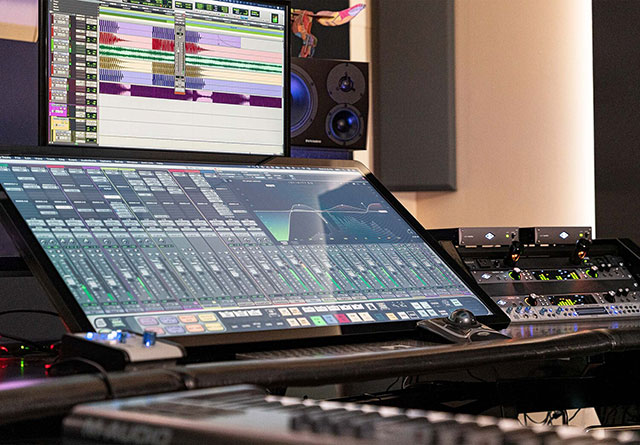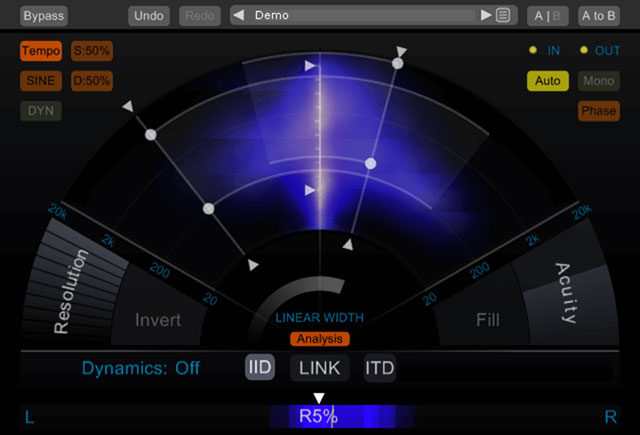 Audio post-production is an essential process in the music industry that involves enhancing and refining recorded audio. It's a painstaking and time-consuming task that requires understanding the technical aspects of audio engineering and the creative elements of music production. Post-production sound involves several components, with audio mixing and mastering being the most widely used techniques in audio engineering.
Audio post-production is an essential process in the music industry that involves enhancing and refining recorded audio. It's a painstaking and time-consuming task that requires understanding the technical aspects of audio engineering and the creative elements of music production. Post-production sound involves several components, with audio mixing and mastering being the most widely used techniques in audio engineering.
Audio mixing and mastering are two different processes that are often used interchangeably. In essence, mixing is the process of combining separate audio tracks into a single output that sounds cohesive and balanced. Think of it as assembling a puzzle, where all the pieces must fit together perfectly to create a complete picture. On the other hand, mastering is the final stage of audio post-production, where the final stereo mix is processed and optimized for playback on various media platforms.
Audio mixing is a complex two-step process involving establishing balance and eliciting tone and emotion. The primary objective of mixing is to ensure that all the instruments and sections of the audio track blend seamlessly to produce a coherent sound. This process involves making hundreds of minor adjustments to achieve a more pleasing sound quality. Mixing consists of polishing the audio track and making it objectively good, but ultimately, the goal is to make it subjectively excellent. This can be achieved using various tools such as chorus, distortion, phasers and automation.
Creating a more comprehensive mix requires balancing the volume of each instrument and frequency range to ensure they're not overpowering one another. Each instrument's space in the stereo image must also be considered to prevent them from clashing. The sound effects, vocals and instruments should work together to create a harmonious blend. It's also essential to adjust the levels and stereo image to ensure that each element is audible and provides a smooth transition throughout the song.
Audio mastering is the final stage of audio post-production, where the final stereo mix is optimized for playback on various media platforms. The primary objective of mastering is to ensure that the audio track sounds great on any device, from small phone speakers to massive sound systems. This is achieved through several processes, including equalization, filtering, minimizing and stereo amplification. Mastering involves fine-tuning the speed and equalization of the audio track to achieve a quality comparable to other professionally produced tracks.
A mastering engineer is responsible for managing various elements of audio post-production, including cleaning up unwanted sounds, assembling tracks into a final sequence, and adding track markers and other codes necessary for reproduction. This process ensures the audio track meets industry standards and sounds great on any platform.
Modern online mastering tools and software have enabled artists to create high-quality audio tracks without necessarily hiring expensive mastering engineers. However, some artists still prefer to use traditional mastering studios where they can receive personalized services and tweak their tracks to perfection.
Overall, audio post-production is a critical music production component involving several technical and creative processes. Audio mixing and mastering are essential techniques ensuring that the final audio track sounds great on any platform. Modern tools and software have enabled artists to produce high-quality audio tracks without incurring significant expenses.
As we've seen, mastering is an essential part of the audio production process. This final stage of audio post-production aims to refine the audio mix and bring it to a professional level. Various methods are used for this purpose, and each requires high technical expertise and attention to detail to achieve the desired results. Let's take a closer look at some critical aspects of mastering that audio engineers focus on to create a polished and professional audio mix.
Audio polishing is the initial stage of audio mastering, where audio engineers aim to eliminate any unwanted flaws and inconsistencies in the mix. This stage involves using a combination of techniques, such as noise reduction, equalization and dynamic range processing, to fix subtle errors that may become noticeable when the audio is expanded. The primary goal of audio polishing is to make the mix sound as clean and consistent as possible.
 Stereo enhancement is another essential aspect of audio mastering that focuses on improving the spatial harmony of the soundtrack. When done correctly, stereo amplification widens the mix and makes it sound larger. Audio engineers use various techniques, including stereo widening, panning and EQ, to enhance the stereo image of the mix.
Stereo enhancement is another essential aspect of audio mastering that focuses on improving the spatial harmony of the soundtrack. When done correctly, stereo amplification widens the mix and makes it sound larger. Audio engineers use various techniques, including stereo widening, panning and EQ, to enhance the stereo image of the mix.
Equalization, commonly referred to as "EQing," is a critical aspect of audio mastering that involves adjusting the tonal balance of the mix to achieve a clean and balanced sound. EQing is essential because it determines spectral inequalities and features that need highlighting. The ultimate goal is to ensure that no single frequency band overpowers others, as this can compromise the overall quality of the mix. Skilled audio engineers use an array of EQ techniques to shape the audio's tonal balance, removing unwanted frequencies and emphasizing desired ones. An EQ tool is an indispensable asset in audio mastering, allowing audio engineers to sculpt the audio's timbre to meet the desired tonal balance, resulting in a polished and professional-sounding mix.
Compression is the process of improving and fixing the mix's dynamic range. This involves keeping noisy signals in place while pulling up quieter bits. Compression enhances the overall appeal and vibe of the audio, helps to balance the levels of the mix and prevents any unwanted distortion.
The final stage of mastering is typically a limiter, which is a form of a compressor. Limiters create a maximum ceiling and set the required average loudness. This process makes the audio loud enough to compete without cutting, which can create distortion. Loudness is critical in audio mastering as it ensures the mix is optimized for playback on various platforms and devices.
The final mastering stages involve sequencing and spacing, which organize the audio in a collective form. This process determines the silence in each track and ensures that the tracks flow smoothly without any jarring or abrupt changes. Audio engineers use this process to create a cohesive and polished final product.
Mastering is an intricate process requiring high technical expertise and attention to detail. Audio polishing, stereo enhancement, equalization, compression, loudness, sequencing and spacing are all critical aspects of mastering that audio engineers focus on to achieve a polished and professional audio mix. With a mastery of these techniques, audio engineers can create high-quality and optimized audio mixes that can compete on various platforms and devices.
Mastering is a crucial stage in audio production that's often overlooked, but it can make all the difference in how your music sounds. The mastering process involves taking a final mix and enhancing it to ensure it translates well across all formats and playback systems. With the rise of digital platforms, it has become more critical than ever to have your music professionally mastered to ensure it's competitive in the marketplace.
Mastering is essential in music production, as it can make or break the final product. A correctly mastered track will have a balanced and consistent sound across all playback systems, ensuring that it sounds excellent whether played on a car stereo, a smartphone, or a high-end sound system. Without mastering, your music may not have the same impact or reach as it could with professional mastering.
We offer a free online mastering service that allows music artists to perfect their tracks without breaking the bank. Our online mastering tools use cutting-edge technology to enhance the sound quality of your tracks, making them sound better than ever before. Our service has been designed to be efficient and easy to use, so you can master your tracks quickly and easily.
Our mastering service is perfect for those with a small budget who want to produce high-quality tracks. Using our free online mastering tools, you can achieve professional-level sound quality without spending a fortune. Our tools are also great for independent musicians who may not have access to a professional mastering engineer or studio.
If you want to learn more about audio mastering practices and techniques, our Blog and Bookshop offer a wide range of mastering information and guides. These resources cover everything from the basics of audio mastering to more advanced techniques and practices. Using these tools, you can better understand the mastering process and learn how to apply these techniques to your music.
In conclusion, mastering is an essential stage in music production that should not be ignored. With the rise of digital platforms, it has become more critical than ever to have your music professionally mastered to ensure it's competitive in the marketplace. Using our free online mastering tools and resources, you can achieve professional-level sound quality without breaking the bank. Whether an independent musician or a professional producer, our mastering tools and guides can help you take your music to the next level.